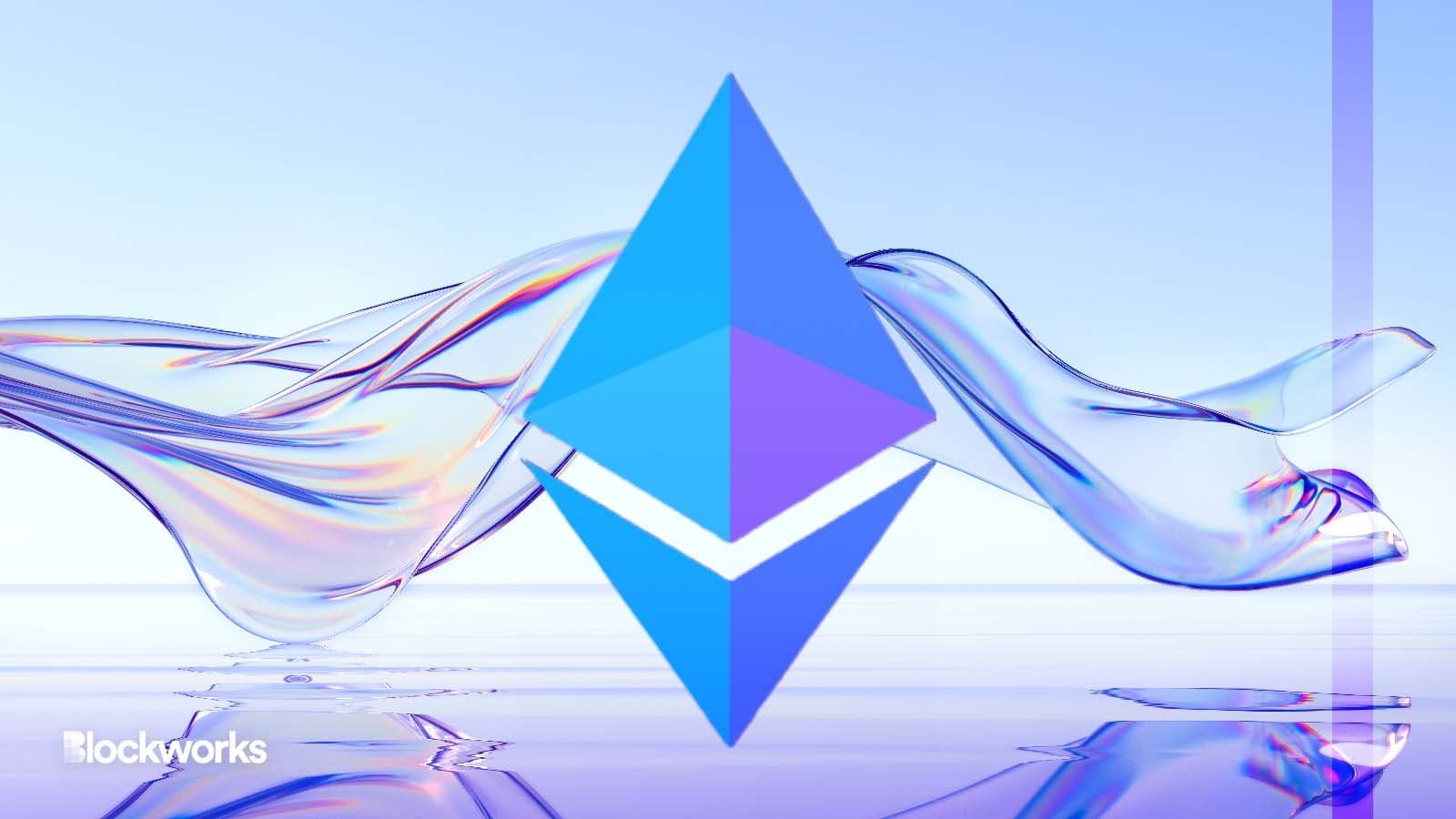All Eyes on Liquid Staking Derivatives as Shanghai Upgrade Nears
Following the Shanghai Upgrade, the Ethereum blockchain could potentially welcome a new cohort of stakers

Berezovska Anastasia and Shizume/Shutterstock.com modified by Blockworks
The Ethereum Shanghai hard fork is less than two months away, and liquid staking derivatives (LSD) are gaining momentum in the cryptocurrency market.
Following Shanghai, users can withdraw ether locked up on the Beacon chain — opening up an exit for long-time Ethereum stakers.
Blockworks Research analysts note in a report that this upgrade is likely to encourage more ETH holders to lock up their assets over the long term, increasing pressure on stake rate — but it is possible that there could also be a dip in staking demands as withdrawals become available.
Alluvial co-founder and Chief Operating Officer Mike Taormina told Blockworks that the rise in popularity of liquid staking derivatives on Ethereum should come as no surprise, as it’s about more than the debut of withdrawals.
“Liquid staking also solves a real problem: When you lock tokens to participate in the security of the network, those tokens are illiquid,” he said.
Not so, with ether receipt tokens.
Liquid staking in proof-of-stake ecosystems
The ordinary staking process involves locking up cryptocurrency in a proof-of-stake network to support blockchain operations and enable transactions, while simultaneously allowing users to accrue staking rewards.
In the case of Ethereum, an individual user must deposit 32 ETH ($50,900) to the blockchain and activate the validator software to participate in staking.
As ETH holders often do not have enough funds or technical expertise to run their own validator node — now exceeding 510,000 worldwide — liquid staking protocols, including Lido, Rocket Pool and Frax, remove the barrier to entry by allowing ether holders to participate in staking without having to lock in any tokens.
This is often referred to as pooled staking, and users who participate are given ERC-20-compliant liquidity tokens that represent their staked ether, which they can hold in their wallets and use in other DeFi applications. But using decentralized exchanges, they can also sell back into normal unstaked ether at any time.
Of course, liquid staking is not only limited to the Ethereum blockchain. The Solana network has been actively looking at ways to grow its total value locked (TVL) — particularly following events related to FTX, which hit Solana hard — and liquid staking derivatives may address some of these challenges.
Marinade Finance, a non-custodial liquid staking protocol built on the Solana blockchain, is hoping to increase DeFi activity on its network by launching a program that will distribute its governance token MNDE to individuals and protocols in hopes of growing mSOL TVL.
“There’s so much locked SOL that’s staking. It’s helping decentralization and validation, but it’s not helping liquidity, so what we want to see is some of that stake turn into liquidity — and help DeFi protocols — and liquid staking tokens is really the mechanism for that,” Brandon Tucker, a growth lead at the DAO, told Blockworks.
Setting a new liquid staking standard
Following the Shanghai upgrade, Taormina believes that liquid staking tokens may become even more popular — driving increased confidence in the Ethereum blockchain and welcoming a new cohort of mainstream adopters.
Ethereum has a much lower percentage of its token staked — less than 14% per Blockworks Research — compared to other blockchains, Taormina said.

“There’s something holding Ethereum holders back from participating in staking, this is why the upgrade is so important,” he said. “The Shanghai upgrade will finally enable withdrawals and remove uncertainty…we think that more people will end up participating [in staking].”
In anticipation of a growth in staking participants, Taormina and his team at Alluvial are partnering with a handful of Web3 teams to design a new liquid staking standard.
This new standard, dubbed ‘Liquid Collective,’ will be an enterprise-grade liquid standard built to attract enterprise-grade users to Web3.
“This is important because it helps onboard a cohort of users that are on the sidelines that would be interested in staking but need experience to meet some minimum thresholds that aren’t currently met today,” Taormina said.
If you want to read more about the current state of liquid staking derivatives on Ethereum and their yield market share, you can subscribe to Blockworks Research and read their latest report at no charge for the next 24 hours.
Get the news in your inbox. Explore Blockworks newsletters:
- The Breakdown: Decoding crypto and the markets. Daily.
- 0xResearch: Alpha in your inbox. Think like an analyst.






